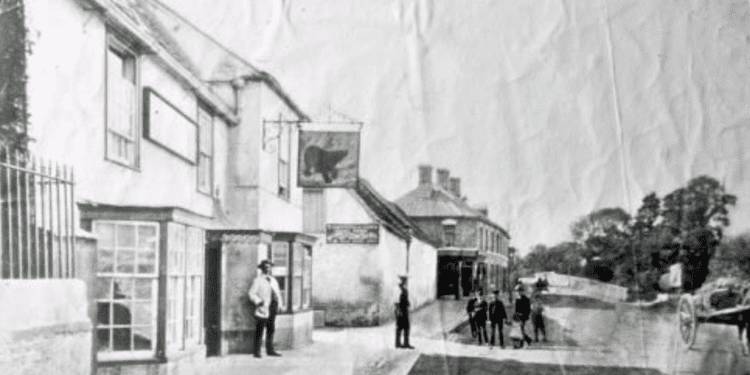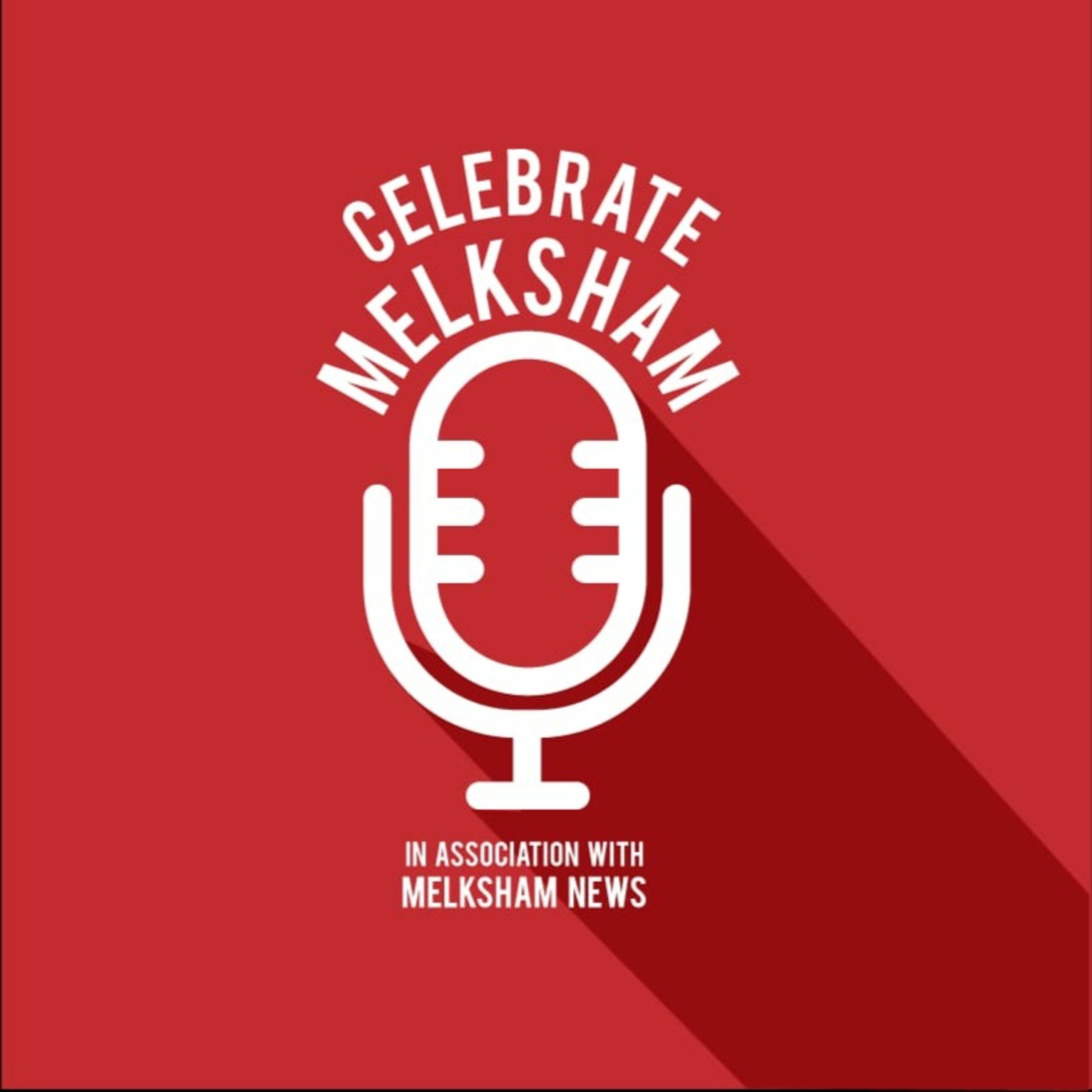A column about days gone by in Melksham by local historian Lisa Ellis
The Bear Riots of 1868
Looking at the peaceful town now, you wouldn’t know that Melksham was actually rather riotous years ago.
Several incidents made national news: the weavers’ riots in the 1720s and the time that a group turned over the famous Gurney steam engine in 1829. However, journalists seemed to exaggerate the lemonade glasses shown as missiles and furniture hurled into the air during a dance at the Assembly Hall in 1947 by calling it ‘a riot.’ After all, the band still played on.
Then there were ‘The Bear Riots.’
The entire event can be best told in the words given in testimony by policeman Isaac Luffman in court about the day that Sir George Jenkinson, Conservative MP for Wiltshire North and his committee attended the polling at Melksham, much to the annoyance of the Liberals.
Tuesday, 24th November, 1868 – Polling Booth (No 2) opposite The Bear
“About 5 o’clock in the evening a large crowd assembled in front of The Bear, the house patronised by Sir George Jenkinson, one of the candidates. There was great shouting and soon after I heard the smash of one of the windows. I got among the crowd and requested them not to break the windows; but from that time until nearly 8 o’clock stones were thrown, occasionally and in several cases the windows were struck. The stones were thrown from under a dark wall. When a carriage passed, the crowd opened and the people shouted.
“Soon after 8 o’clock I saw a person under the wall stoop. His right hand was near the ground. I saw him raise it and threw a stone at the Bear Inn and immediately I heard the sound of broken glass. I went across, caught him by the collar and said, ‘You have thrown a stone and broken a window.’ The man’s name is James Trueman. He said, ‘I have not.’ I said, ‘I saw you do it’. He said, ‘I don’t think you did.’ I asked him his name and he did not speak. I called Constable Priest and he told me his name. I then let him go.
“Soon afterwards I saw Thomas Fell deliberately throw a stone at the Bear Inn and break one of the windows. I went to him and charged him with having done so. He said nothing. I said, ‘Have you any stones in your pocket?’ He said, ‘No’. I searched him and in his right-hand coat pocket I found the stone (produced) and I said to him, ‘What do you call that?’ There was a heap of large stones about 50 yards off. No broken stones were near. Fell afterwards came to me and said, ‘I hope you will say nothing about taking that stone from my pocket.’
“Directly after this I saw Henry Escott, standing in the crowd under the window of the Bear Inn. I saw his arm move and immediately heard the sound of broken glass. I went to him, caught hold of him and said, ‘I believe you broke that window.’ He said — ‘So help me G– I have not; my hands are up.’
“Previously to that he had been taking a conspicuous part. He was continually saying, ‘Go in! Go in! B– your eyes, go in!’ addressing the people in general. He had been for some time doing this.
“I then heard someone kicking at the front door of the inn and the crowd moved up towards the door. I worked my way to the door and I found Henry Escott and a man named Elliott kicking at it. I said, ‘Don’t kick the door in; there is no one here to interrupt you.’ Escott at once turned his back to the door and said, ‘B– the door’ and with both feet he kicked the panels in with his heels.
“The crowd was now very noisy and I was hustled a good deal. Immediately after he had broken the door, Escott ran through the crowd and got off; but I went after him and caught him and charged him with breaking the door. He said it was a d– lie.
“Witness (Luffman) went on to state that the crowd continued to get more noisy and that soon afterwards the Riot Act was read and a number of special constables sworn in; that an attempt was then made to clear the streets, but that the people moved from one place to another, throwing stones as they went (one of which struck witness in the neck); and that it was nearly one o’clock before the town was quiet. [Witness produced the two panels of the door of the Bear Inn, which were kicked in.]”
Others mentioned in testimony included:
William Bullen – constable
Charles Priest – constable, struck in the head with a stick
Captain Awdry – who was also wounded
Farmers Mr Beaven of Queenfield, Mr Long of Bezzells Farm and Mr Pocock (who received a cut eye) tried to leave The Bear, but were kept inside by the taunts of Escott and James Elliott
Mr Heathcote, who was inside The Bear and went out to try to talk to the crowds, but was greeted with stones being thrown
William Justly Awdry, who was employed by Jenkinson and was inside when a stone came through a window in the committee room where he was writing a letter (he’d gone out with Heathcote, but was struck in the shoulder by a clump of earth).
In all, about 20 constables walked as a body towards the crowd, endeavouring to drive them toward the town bridge. “There were mostly Atford (sic) and Whitley people there. The Melksham people did not appear to be taking an active part, excepting lads hooting and shouting,” testified Priest. They then went around the town and cleared all the public houses. Everyone was ordered to go home.
Henry Bown, the landlord of the Bear Inn, after deposing to the fact of all his upstairs windows and some of the frames having been broken and to his front and side doors having been broken down, and the great gates of the yard lifted off their hinges, said there was not a person in his house the worse for liquor throughout the day, nor did anybody in his house provoke the mob. He produced an immense number of stones, which his two boys picked up in the bedrooms the next morning, and said he could have brought another basket full.”
Pictured: The Bear c1890
























